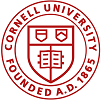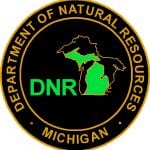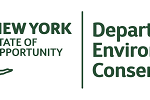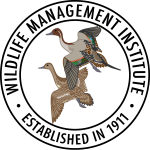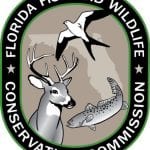The Wildlife Management Institute (WMI) along with Cornell University, the Association of Fish and Wildlife Agencies’ (AFWA) and staff from the Florida Fish and Wildlife Conservation Commission, the Michigan Department of Natural Resources, and the New York Department of Environmental Conservation are collaborating to improve Public Trust Practice.
Why is improving public trust practice important?
State agencies are facing an increasingly challenging management environment. Human impacts on wildlife populations and habitats are accelerating, people’s desires for how wildlife is managed are changing and often in conflict, and the range of stakeholders who expect a role in decision making is expanding. More Americans are becoming disconnected from the natural world, have competing values where conservation is a low priority or irrelevant to them, or are focused on a narrow range of wildlife-related interests.
Improving public trust practice
Improving Public Trust Practice is based on recently developed Wildlife Governance Principles which draw on attributes of public trust thinking and good governance norms. Public trust thinking reflects the belief that certain resources are an intergenerational inheritance, held in trust by government for the benefit of all current and future citizens. Modern society’s expectations for “good governance” include transparent and participatory decision making, equitable consideration of diverse views and values, effective and efficient administration, strategic and adaptive thinking, and accountability of government.
The Wildlife Governance Principles provide guidance for the ongoing evolution of the conservation community that is necessary to adapt to changes in management context and citizens’ desires. By aligning governance practices with these principles, agencies will be positioned to fulfill their responsibility to manage fish and wildlife in ways that reflect good governance in a public trust framework. As a result, agencies can expect to be more responsive and relevant to more citizens and enjoy broader public support and success.
Improving Public Trust Practice follows the pattern of an adaptive process:

Click on each title below for more information:
The first step is recognizing the need to improve public trust practice by your agency. Are your agency’s decisions frequently challenged by members of the public? Is your agency reactive to public or political pressure rather than proactive in dealing with challenges? Is lack of public support affecting your budget or programs? Do you struggle to build partnerships to help you accomplish your mission? If so, your agency may need to improve its public trust practice. Some resources that may help you understand the nature of public trust practice and how it relates to your agency can be found under the Learn More tab. Completing the Preliminary Principles Performance Assessment Tool (PPAT) may help you make a rapid assessment of the need for improvement by your agency.
A number of factors can affect your agency’s readiness to implement the remaining steps to improve Public Trust Practices. These include awareness of public trust responsibilities, budget, agency culture, external conditions, etc. Completing the Agency Culture and Capacity Characterization (ACCC) can help you decide if your agency or referent is ready to move ahead. If not, it may be beneficial to take some remedial actions before moving forward. It is important to gain the support of leadership both within, and above that level to empower the improvement process.
Our team developed an Agency Self-Assessment Tool in 2016 that allows you to identify in detail where your traits and practices align with the Wildlife Governance Principles and where change is needed to improve Public Trust Practice. This tool uses an on-line survey administered to selected individuals in your organization. It asks survey participants to rate both the importance of and satisfaction with 32 traits and 66 practices that relate to the Wildlife Governance Principles. The tool is administered by Cornell University. Results are compiled into a comprehensive report that identifies strengths and opportunities for improvement in areas of strategic thinking and organizational adaptability, use of evidence-based and broadly informed decision-making, transparency and accountability for decisions and actions, inclusiveness and diversity, and capacity for conservation. The results serve as the foundation for the next step in the improvement process.
Participants typically come together in a workshop setting to analyze and discuss the results of the Agency Self-Assessment and identify priorities for improvement. Importantly, the improvements focus on practices – specific, observable behaviors and actions your agency demonstrates. During the workshop participants decide which improvements to implement, identify the resources needed, establish responsibility for implementation and determine when and how to evaluate progress. This reinforces the adaptive nature of the improvement process depicted in the schematic.
The implementation and outcome of changing practices to improve alignment with the Wildlife Governance Principles need to be evaluated so real progress can be documented and any necessary “course corrections” can be made. Regularly referring back to the Agency Self-Assessment results and priorities from the workshop to re-evaluate your priorities, goals, and plans for accomplishing those goals will keep the process on track.
Testimonials
See what some wildlife professionals are saying about Wildlife Governance Principles workshops:
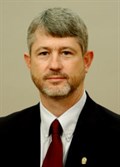 “FWC piloted the Wildlife Governance Principles workshop in January 2016. The principles align with what we are trying to accomplish in FWC – changing our behaviors and practices to reach out to new, diverse audiences and engaging them in our decision-making processes to achieve our conservation goals. We thought that these were so important that we have incorporated them in our in-house leadership development program in a course required for all supervisors.”
“FWC piloted the Wildlife Governance Principles workshop in January 2016. The principles align with what we are trying to accomplish in FWC – changing our behaviors and practices to reach out to new, diverse audiences and engaging them in our decision-making processes to achieve our conservation goals. We thought that these were so important that we have incorporated them in our in-house leadership development program in a course required for all supervisors.”
– Nick Wiley, former Executive Director, Florida Fish and Wildlife Conservation Commission
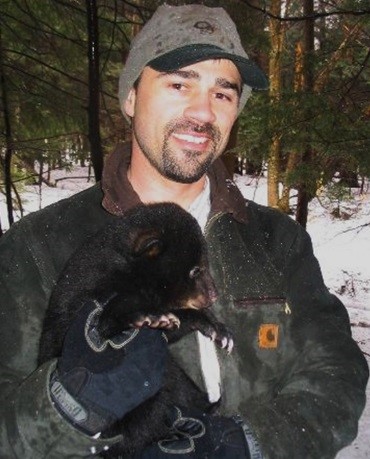 “We rarely make space for introspection about agency culture, transparency, whether our typical decision processes are truly inclusive and participatory with the public we serve, and how these issues influence our ability to deliver wildlife management programs. The Wildlife Governance Principles Workshop gave us that opportunity, helped us recognize where we have already incorporated principles of good governance into our work, and to discuss priority areas for improvement.”
“We rarely make space for introspection about agency culture, transparency, whether our typical decision processes are truly inclusive and participatory with the public we serve, and how these issues influence our ability to deliver wildlife management programs. The Wildlife Governance Principles Workshop gave us that opportunity, helped us recognize where we have already incorporated principles of good governance into our work, and to discuss priority areas for improvement.”
– Jeremy Hurst, Big Game Unit Leader, NYSDEC

